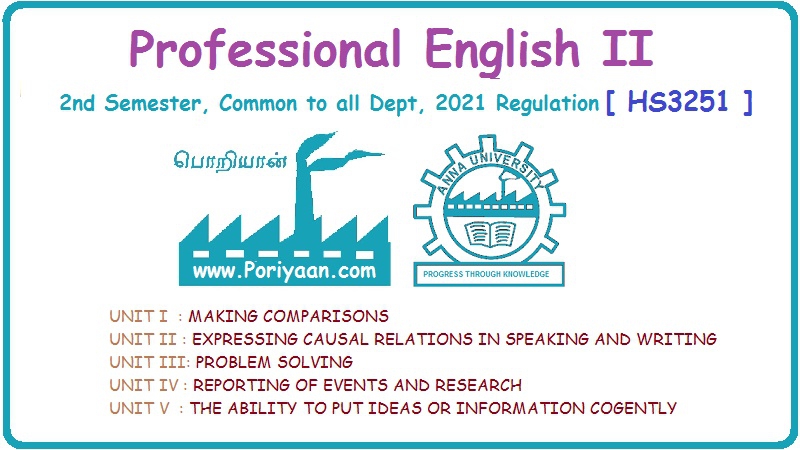Professional English: Grammar: UNIT 1
Grammar Mixed Tenses
Grammar
What is tense? Tense is a grammatical term used to indicate whether the action in a sentence has already taken place or going on now or will happen in future. There are three basic tenses:
PART - A
CHAPTER - 9
GRAMMAR
MIXED TENSES
What is tense? Tense is a grammatical term used to indicate whether the action in a sentence has already taken place or going on now or will happen in future. There are three basic tenses:
PRESENT TENSE, PAST TENSE AND FUTURE TENSE.
Present
tense has four tense forms such as
•
Simple Present Tense
•
Present Perfect Tense
•
Present Continuous Tense
•
Present Perfect Continuous Tense
Titbits
The term, 'tense' is derived from its Latin root, 'tempus' which
means ‘time'.
Similarly,
Past Tense has four tense forms such as
•
Simple Past Tense
•
Past Perfect Tense
•
Past Continuous Tense
•
Past Perfect Continuous Tense
In
the same way, Future Tense has also four tense forms such as
•
Simple Future Tense
•
Future Perfect Tense
•
Future Continuous Tense
•
Future Perfect Continuous Tense
There
are situations when to use which tense. This chapter will explain mixed tenses.
Mixed tenses occur when the verbs in a sentence are in more than one tense. The
same sentence can use two different tenses.
Eg.
Normally my schedule is going to temple every morning. But
yesterday I went to post office and tomorrow I will go
and meet an elderly sick patient to give her emotional solace.
Learning
grammar or language is a lifelong process. Normally the learners get confused
when they write a sentence using mixed tenses. Unless the basic concepts are
clear, error may occur. Every tense should be studied in detail to avoid
confusion.
'It
will not be logical if the same tense is used in the whole passage. According
to the events or actions, tense may take its appropriate form from its various
forms.
Titbits
'I wish I knew swimming' means
that the person does not know swimming.
Example
1.
The government has announced (Present Perfect Tense) that free
ration distribution will be extended (Future Tense in passive form)
till March 2022. The ration card holders have started (Present Perfect
Tense) buying from the first of March. Some of them bought
(Simple Past Tense) the freebies. Some of them are yet to get. Most of
the card holders will get (Simple Future Tense) the supplies.
2.
UP Government has registered (Present Perfect Tense) a decline in
its unemployment rate from 18% to 4.1% in 2021. 4.5 lakh youths are
employed (Simple Present Tense in Passive Voice) in government jobs.
3.5 lakh youths are given (Simple Present Tense in Passive Voice)
contractual government jobs. More than 2 crore youths are employed
(Simple Present Tense in Passive Voice) in state's MSME sectors.
(Micro, Small and Medium Enterprises). Through ODOP (One District One Product)
initiative, state's traditional artisans registered (Simple Past Tense)
a 3 to 5 times increase in their incomes.
3.
The state government augmented (Simple Past Tense) number of
medical seats from 4,540 graduation seats in 2016 to 8,128 in 2021. The UP
government established (Simple Past Tense) Atal Bihari Vajpayee
University. AIIMS is (Present Tense of 'be' form) operational at
Gorakhpur and Rae Bareily. Overall 59 Medical Colleges are functioning
(Present Continuous Tense) in UP.
4.
"Oh my goodness, that' (Present Tense of 'be' form) my grandfather", exclaimed
(Simple Past Tense) Rathi Jafer, during the unveiling of 'Chicken Run',
a photo narrative, which captures (Simple Present Tense) a
powerful yet little remembered slice of Indo-Korean history from the 1950s.
"My father left (Simple Past Tense) his personal videos,
papers, and memorabilia to me, which was (Past Tense of 'be' form)
the original inspiration for the project as well as feature in it", says
(Simple Present Tense) Parvathi Nayar.
5.
A train chugs (Simple Present Tense) on the snow-covered railway
truck after heavy snow fall at Qazigund in Jammu and Kashmir. The minimum
temperature in most places of Kashmir stayed (Simple Past Tense)
close to the freezing point, officials said. Srinagar recorded (Simple
Past Tense) a minimum temperature of 0.3 degree Celsius.
6.
It was (Past Tense of 'be' form) considered that life was
(Past Tense of 'be' form) already destined. Now also people believe
that everything is destined to happen at a particular time. There is another
version which says that you are the architect of you future. Life is mysterious
and it won't come under single philosophy. Your life is your responsibility. If
you want (Simple Present Tense) to be alive you have to make the
adjustments. The responsibility of 'not hitting' and 'not being hit', both are
yours and yours alone. Blaming makes (Simple Present Tense) no
sense. Similarly, in the road called life, in dealing with the traffic called
relationships, it is not the question of whose mistake, but it is the question
of whose life. In relationships too, if you want (Simple Present Tense)
happiness, you have to make the adjustments. Here too, blaming makes
(Simple Present Tense) no sense. (There are many verbs but only some
verbs are attached with the names of their tense forms)
Professional English: Grammar: UNIT 1 : Tag: : Grammar - Grammar Mixed Tenses
Related Topics
Related Subjects
Professional English II
HS3251 2nd Semester 2021 Regulation | 2nd Semester Common to all Dept 2021 Regulation
